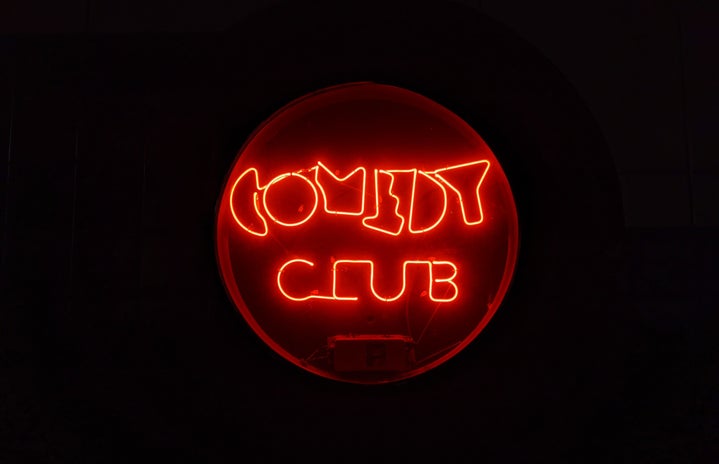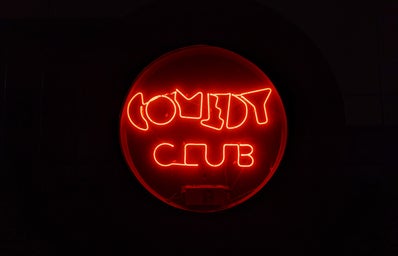Could this article be read as a love letter to Andy Samberg? Sure, but so could most things I write. That said, it’s time we give appreciation to one of life’s great joys: the comedy song.
The term comedy song might welcome a variety of examples – perhaps it’s Adam Sandler’s “Hanukkah Song”, or SNL’s “(Do It On My) Twin Bed”, Weird Al, and so on. The comedy song has likely wiggled its way into your life one way or another. If I had to guess, my first experience with this genre of music was when I stumbled onto a weird side of YouTube in my grade three computer class. So how did I go from that to listening to the Popstar: Never Stop Never Stopping soundtrack front-to-back in public? Great question. Let’s unpack.
The comedy song seems to be on the rise, and I credit a large part of that to TikTok. Firstly, that app dictates and meets the need we’ve set for ourselves: everything must be funny! Secondly, we’ve reached a point in social media where cultural items are completely randomized and stripped of their context that we might have zero interest in (ie. comedy). For instance, I know plenty of people passionately singing snippets from Bo Burnham’s Inside without any interest in Burnham, or watching something that’s over an hour long. I’d even argue that TikTok has changed our interaction with music as a whole, so much that regular songs take a comedic edge in their public consumption. Why do we want everything to be funny? Why do we enjoy the comedy song so much? Obvious answer aside (ie. we enjoy laughter and comedy is refreshing), I think the success of the comedy song rests on a larger idea altogether.
Firstly, the comedy song suggests something that’s not serious. Music can generally be considered pretentious in that pop stars take themselves very seriously. Comedians differ in this way. They don’t approach the listener the same way as a musician does. We approach the comedian in a different way, as well. Typically, we have lower expectations of the vocal or melodic quality of a comedy song – we don’t consider it serious music – which means our expectations are easily exceeded. However, given the effort of the professional producers and musicians who partner with these comedians, it’s clear that the work is serious. It just doesn’t sound serious. Which means it’s more accessible, right?
Secondly, comedy songs trick us into sincerity. Sometimes you listen to a pop song and hope the performer is kidding. Sometimes with comedy songs, you hope the performer is being real. That’s where we get a kick out of comedy songs. This genre distills sincerity. Within an environment that arguably can’t handle sincerity in many of its forms, the comedy song lets us process aspects of our collective experiences in a disarming way. It also lets us feel smart in doing so. Even if the subject is as frivolous as a song about coffee (see: Chelsea Peretti’s entire EP), feeling part of the joke lets us feel active in digesting culture. In other words: comedy songs let us feel smart, edgy, and playful, to a catchy beat and in under five minutes. It’s quick, and it’s an ego boost. Especially since the performer’s ego comes secondary to the listener’s. Or does it?
For the most part, this genre re-disguises ego, either through self-decrepecation or placing micro, “dumb” concepts on a major scale. The presence of the artists’ ego is lessened in comedy songs – of course, that’s deceptive (what is art without ego, am I right?). However, the role of ego stays in the studio, where the seemingly un-serious creatives battle with their egos for likely months at a time – we just see the fun part. We’re led to believe everything is as seamless as it sounds. As we should! This contributes to the accessibility of the comedy song. We’re the ones laughing, which means our egos grow as we’re made to feel like the intelligent ones. Between the distancing of ego and insincere sincerity, we can listen to comedy songs to laugh through misery and champion the ironic.
Perhaps this evaluation of the genre depicts comedy songs as deceptive or sneaky in a bad way. Well, comedy songs are sneaky, but they are also my favourite. So maybe the sneakiness isn’t always troubling. In my humble opinion, if this “deception” leads us to laughter and reflection, or gives us funny songs to sing in the car, then I’m game. Is it healthy to have the ironic score my life? That’s a question for my therapist. A question for you, however, is… why are you not listening to a comedy song right now? Go laugh, feel clever, and give The Lonely Island the respect that they deserve.


